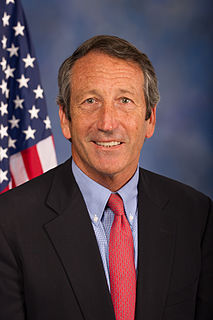A Quote by Jaime Harrison
When I think about our HBCUs, I think of icons like my mentor Jim Clyburn, a South Carolina State graduate, who fought against discrimination and segregation, and continues to champion for civil rights and equality.
Related Quotes
[Before the Civil Rights Act of 1964], many governments in southern states forced people to segregate by race. Civil rights advocates fought to repeal these state laws, but failed. So they appealed to the federal government, which responded with the Civil Rights Act of 1964. But this federal law didn't simply repeal state laws compelling segregation. It also prohibited voluntary segregation. What had been mandatory became forbidden. Neither before nor after the Civil Rights Act were people free to make their own decisions about who they associated with.
I think our message,the Clinton campaign was very strong. Remember, this is their fourth campaign in South Carolina. Two for Bill Clinton. Two for Hillary Clinton. They had it well organized. They did well. And Icongratulate them. We came into that state at something like 7 or 8 percent in the polls. It was a tough road for us to hoe. But I want to thank all of our supporters, the members of the South Carolina state legislature.
I have dear friends in South Carolina, folks who made my life there wonderful and meaningful. Two of my children were born there. South Carolina's governor awarded me the highest award for the arts in the state. I was inducted into the South Carolina Academy of Authors. I have lived and worked among the folks in Sumter, South Carolina, for so many years. South Carolina has been home, and to be honest, it was easier for me to define myself as a South Carolinian than even as an American.
I have a big passion about civil rights for everyone - whoever is being downtrodden at the moment, it doesn't matter: racial discrimination or sexual orientation or gender. Whatever it is, I'm there. I think I was a born civil rights activist. I can't stand the smashing of a community. It's not fair and it's not right.
It took LGBT activists 15 years to defeat section 28, but this is not a movement that's afraid of the long struggle. They know all progress is hard-fought, that discrimination against any individual anywhere is discrimination against all, and that the campaign for true, global equality must therefore be won one issue, case and country at a time.
Equality, in a social sense, may be divided into that of condition, and that of rights. Equality of condition is incompatible with civilization, and is found only to exist in those communities that are but slightly removed from the savage state. In practice, it can only mean a common misery.
Equality of rights is a peculiar feature of democracies. These rights are properly divided into civil and political, though even these definitions are not to be taken as absolute, or as literally exact.
I believe we should work to end all racism in American society and staunchly defend the inherent rights of every person. I have clearly stated in prior interviews that I abhor racial discrimination and would have worked to end segregation. Even though this matter was settled when I was 2, and no serious people are seeking to revisit it except to score cheap political points, I unequivocally state that I will not support any efforts to repeal the Civil Rights Act of 1964.
I wasn't thinking about history. I was thinking about how we were going to end segregation at lunch counters in Atlanta, Georgia.We would have never thought about making history, we just thought: Here is our chance to get out our sense of rejection at this kind of racial discrimination. I don't know that there was a time that anybody growing up in the South wasn't enraged about being segregated and being discriminated against.
For black politicians, civil rights organizations and white liberals to support the racist practices of the University of Michigan amounts to no less than a gross betrayal of the civil rights principles of our historic struggle from slavery to the final guarantee of constitutional rights to all Americans. Indeed, it was practices like those of the University of Michigan, but against blacks, that were the focal point of much of the civil rights movement.































